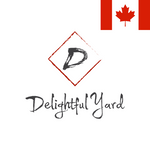Hey there, my fellow outdoor space enthusiasts!
Whether you're planning to build a Gazebo, a Solarium, or a Patio Cover you're making an excellent choice to enhance your home's functionality and aesthetics. However, before you jump into the exciting part of picking out styles and materials, it's crucial to make a well-informed decision about what goes underneath - the base or foundation.
Understanding the different types of bases, and their respective pros and cons, will set the stage for a long-lasting, sturdy structure. So, let's get started and explore some of the common options available.
1. Concrete Slab
This is a popular choice for many homeowners. A concrete slab provides a solid, flat, and durable base for your outdoor structure.
Pros: Concrete is extremely sturdy and can comfortably support a heavy structure. It's also relatively low-maintenance and can endure harsh weather conditions. Plus, you'll love the smooth finish for placing furniture or walking barefoot.
Cons: It's a permanent structure. So, if you decide to move or remodel, it could be a costly and challenging task. Additionally, concrete can crack over time, especially in areas with frequent freeze-thaw cycles.
2. Patio Stones or Pavers
Patio stones or pavers offer a charming, rustic appeal to your outdoor space. They're typically used for smaller structures.
Pros: There's a wide variety of styles, colors, and textures to choose from, allowing you to match your home's aesthetic. They can also be easily replaced or rearranged if you want to change up the look.
Cons: Installation can be labor-intensive and requires careful leveling to avoid an uneven base. Stones can shift over time, leading to an unstable foundation if not properly maintained. They can also foster weed growth in between spaces, which might require regular upkeep.
3. Wooden Deck
A wooden deck can provide a beautiful, natural-looking foundation for your gazebo or patio cover.
Pros: Wood decks have a warm, inviting look and feel. They can be built to any shape or size, allowing for a more customized structure. They also provide good drainage due to their elevated structure.
Cons: Wood requires regular maintenance, including staining or sealing to prevent water damage, rot, or insect infestation. The lifespan of a wooden deck is typically less than that of concrete or stone if not well-maintained.
4. Crushed Stone or Gravel
Crushed stone or gravel is a low-cost, simple option that provides a natural, earthy feel to your outdoor space.
Pros: Gravel is easy to install and provides excellent drainage. It's also flexible, meaning you can change the size or shape of your base without much hassle.
Cons: Gravel can shift over time, potentially leading to an unstable base. It can also be a bit tricky to keep clean and can easily be scattered around your yard.
When choosing a base for your gazebo, solarium, or patio cover, the key is to consider the long-term stability, your budget, and the style you're going for. Keep in mind, too, the climatic conditions of your region, which could influence the longevity and performance of the chosen base.
Remember, every option has its pros and cons. But armed with this information, you're on your way to creating an amazing outdoor space that's perfect for you.
Here's to building dreams from the ground up!
We are Delightful Yard and we carry a wide variety of Gazebos, Patio Cover and Solariums for you to choose for your outdoor haven.

